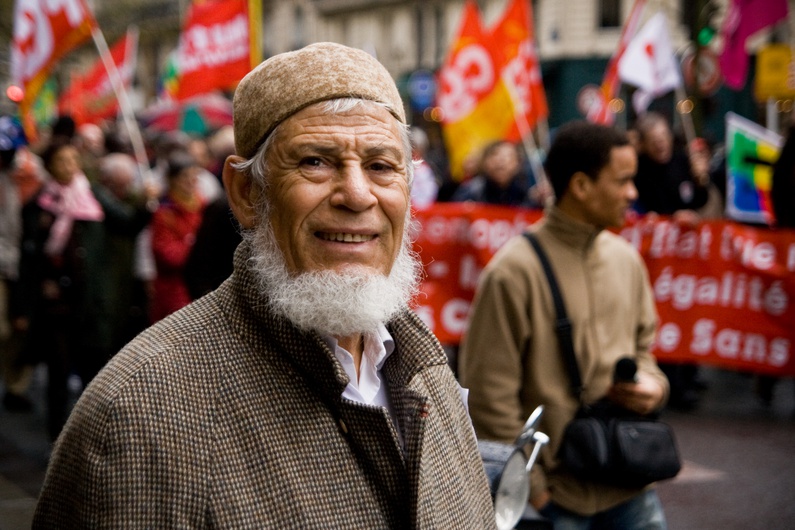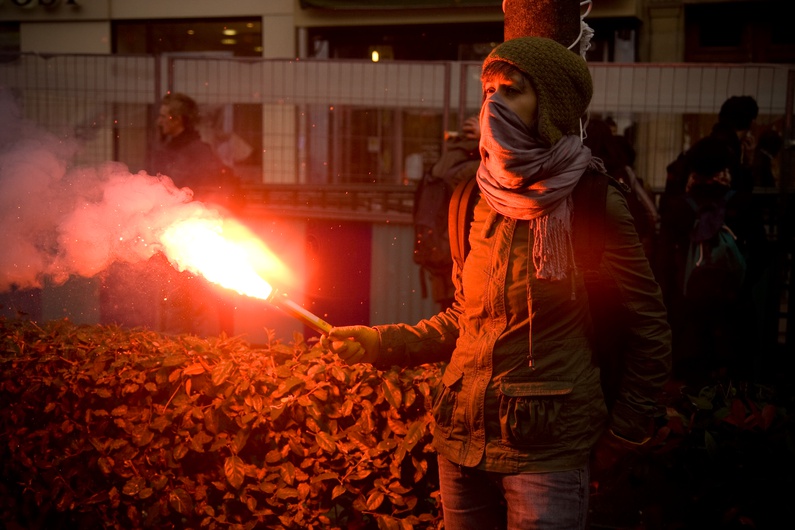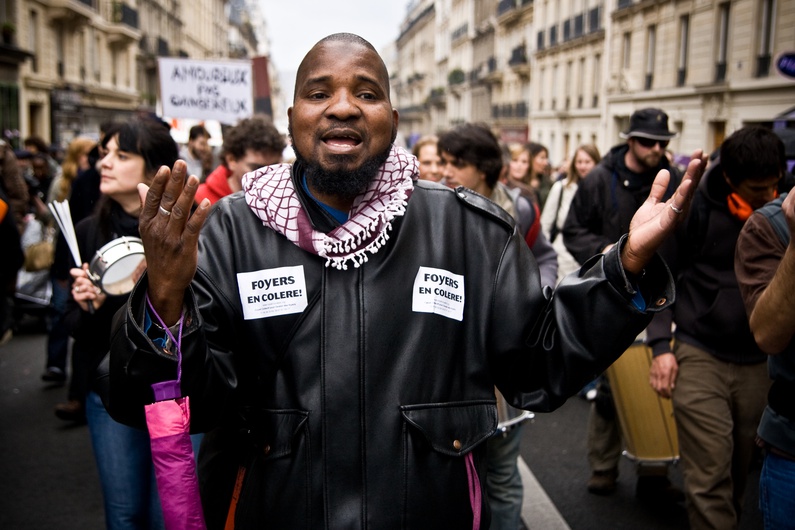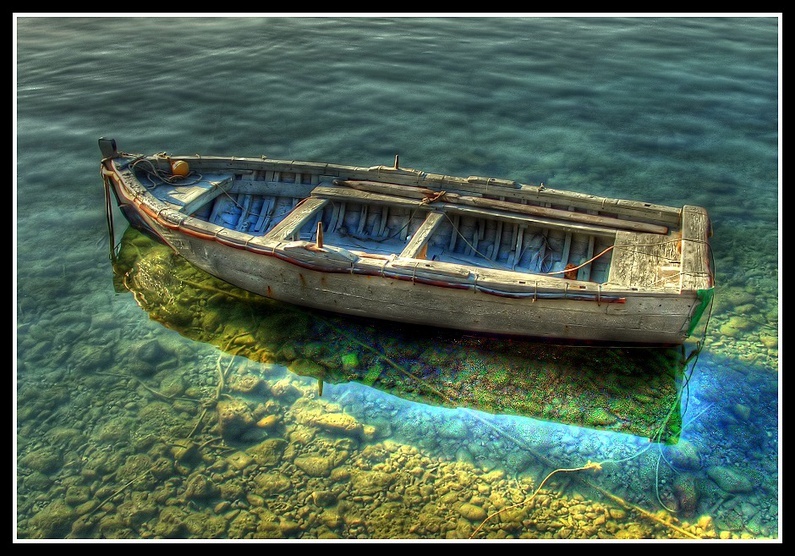
Illegal Immigrants in Paris - Between a Rock and a Hard Place
Published on
For many immigrants, Paris is perceived as a kind of paradise. After long and arduous journeys, immigrants arrive from Morocco and Tunisia with high hopes of a better future. But what's the reality when they arrive without documents, jobs and a proper support network?
In the Paris metro, faces flash by like a multi-ethnic carousel. French, African, Arab, Indian, Chinese… different languages and different backgrounds - it's like flicking through the channels on your television. France is truly one of the multi-cultural capitals of the world.
"France is no longer for the French," says Mrs. Leroy, a French woman and a mother of a two-year-old black haired girl, "We are the minority in our own country." Some French people think that they are 'losing' their identity because of the huge number of immigrants coming into the country, especially those from the Arab world.
Arbi, 27, from Algeria, tells me about the first time he came to France while we admire Paris from the top of Montmartre. "I thought I would find heaven here- we used to know France as the Promised Land, the land of dreams, but it turned out to be a nightmare." Arbi now works as a security guard in a store on the Champs Elysée. "I came here when I was 22. I left school at an early age to make a living for my family, my mum and my nine sisters. I was making 20 Algerian Dinars (1.85 euro) a day and that wasn’t enough.” With a smile on his face, Arbi tells me about his French girlfriend, "She was the only one who saw my truth and loved me as I am. She considers my dreams as hers and that’s what I adore about her.” In 2001, Arbi was convicted of drunk driving and assaulting a police officer, so he ‘escaped’ illegally to Spain, and then to France. “Now everything is legal with me, but I want to go back to my Algeria!” adds Arbi, “I love France, but this is not a way to live. I didn’t choose to be here, conditions did.”
In a Tunisian restaurant, I sit on the terrace with Nader, 18, from Morocco. Nader came to France four months ago with his 20-year-old friend, trying to make his way in the ‘land of dreams’. "My friend and I are always on the move,” Nader says, looking at his mother’s photo in his hands. "We are like a blur, racing everywhere, doing everything, trying to survive, just like all Arabs here, both with papers and without." Nader and other Moroccan teenagers crossed the Mediterranean illegally to Spain and then to France and other EU countries. “We paid over $1,000 for the short, dangerous crossing of the Strait of Gibraltar,” Nader says. The boat, estimated to be carrying, according to Nader, over 40 people, sank in the waters near the Strait of Gibraltar. “Some of us made it to the coast, some died, and others are still missing.”
 Nader passed days on the streets until a Tunisian man hosted him and gave him a job in his restaurant. The owner knows that he has no papers and if the French authorities find out, they may close his restaurant. “I have never felt safe since I came here, but Abdel Majid, my boss, treats me like his son. I don’t feel like I will go far staying in France - this is not the life I came for.” Three years ago, Nader’s father died from cancer and his mum was a housewife. For over a year, he kept looking for work. His mother searched too, but neither succeeded. Before his father’s death, the family enjoyed a relaxed, pleasurable lifestyle. A period of 24 months with no income proved to be devastating for Nader and his family. Desperate, Nader came to France illegally. He wipes his tears with his fingertips, exhales slowly and says, "People say there are always other options,” he continues to crack, “but I couldn't find any."
Nader passed days on the streets until a Tunisian man hosted him and gave him a job in his restaurant. The owner knows that he has no papers and if the French authorities find out, they may close his restaurant. “I have never felt safe since I came here, but Abdel Majid, my boss, treats me like his son. I don’t feel like I will go far staying in France - this is not the life I came for.” Three years ago, Nader’s father died from cancer and his mum was a housewife. For over a year, he kept looking for work. His mother searched too, but neither succeeded. Before his father’s death, the family enjoyed a relaxed, pleasurable lifestyle. A period of 24 months with no income proved to be devastating for Nader and his family. Desperate, Nader came to France illegally. He wipes his tears with his fingertips, exhales slowly and says, "People say there are always other options,” he continues to crack, “but I couldn't find any."
 Many Arabs who enter France illegally are stuck here. Unable to work, they seek help from the Home Office to go back. For some, the European dream simply did not work out. Discouraged and disheartened, they go home. I speak to Saber, 35, a Tunisian-French man, who came to France in 2000 illegally. “I left Tunisia in 1998 for Lampedusa. My first destination was Italy; I thought I would stay there, so, like most of the undocumented immigrants, we started a ‘career’ selling drugs. Months later, I stopped doing that - it wasn’t what I wanted to do. So I left Italy for France, where I met My Wife, Radhia, a 34-year-old Algerian”. Now Saber has legal status in France - he became French two years ago. “French nationality helps me to enjoy rights that immigrants never enjoyed, especially now that I have two kids, Mohamed and Ferdaws, and I have a good job.”
Many Arabs who enter France illegally are stuck here. Unable to work, they seek help from the Home Office to go back. For some, the European dream simply did not work out. Discouraged and disheartened, they go home. I speak to Saber, 35, a Tunisian-French man, who came to France in 2000 illegally. “I left Tunisia in 1998 for Lampedusa. My first destination was Italy; I thought I would stay there, so, like most of the undocumented immigrants, we started a ‘career’ selling drugs. Months later, I stopped doing that - it wasn’t what I wanted to do. So I left Italy for France, where I met My Wife, Radhia, a 34-year-old Algerian”. Now Saber has legal status in France - he became French two years ago. “French nationality helps me to enjoy rights that immigrants never enjoyed, especially now that I have two kids, Mohamed and Ferdaws, and I have a good job.”





